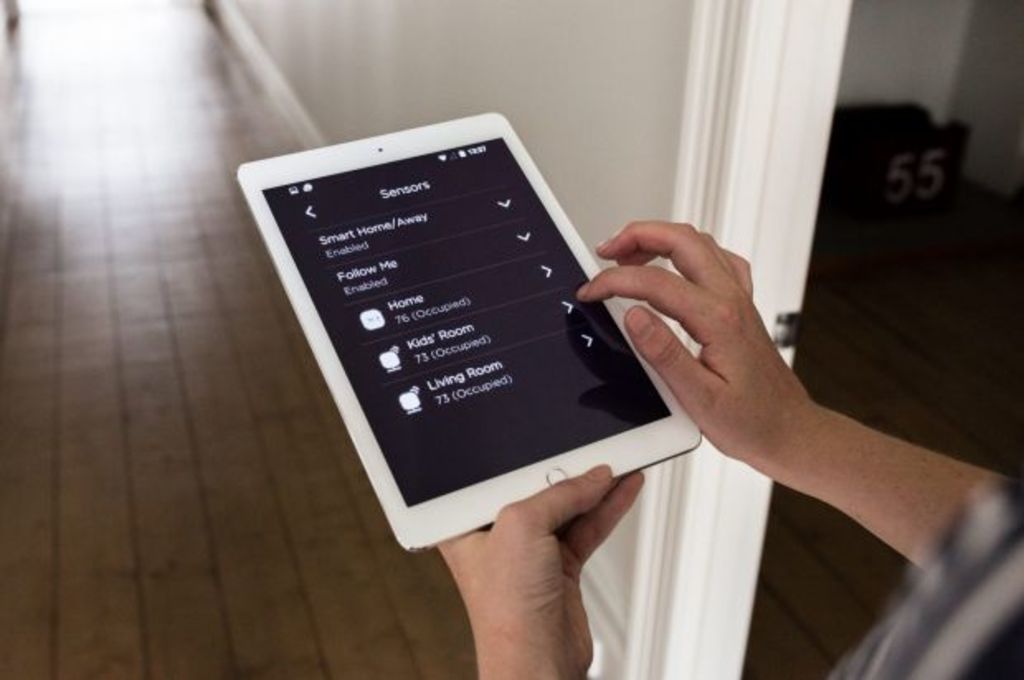Smart home technology sends the right signal to property buyers and renters

With post-Christmas sales popping up left and right it’s the perfect time to take a look at smart home automation technology – not only could it help simplify your day-to-day life, but it can also help you save on your power bill and even increase demand for your property if you try to sell or rent it.
The last couple of years have seen no shortage of new products claiming to be the next big thing you need for the house, but there are only a few that are actually useful and broadly desirable.
Generally, when you’re looking to buy some kind of smart home or home automation tech it’s for one of two reasons: you want it for yourself, or you want it to help sell your property.
So, here’s what you need to know.
What do home automation and smart tech do again?
Home automation is the term given to a wider category of devices that use technology to make your home smarter. This includes everything from smart lights that you can control with your phone to security systems you can monitor away from the house, keyless entry systems and even your power.
Smart battery systems like Tesla’s Powerwall even allow you to pick where you direct your solar energy – to your battery to charge for the night, straight to the house, or back to the energy grid to make you money.
These systems are meant to make your home safer, save you money on bills and make life easier in general.
Home automation is going to be huge: some of the world’s biggest companies are pumping billions of dollars into their ecosystems to be the smart tech controller of your home. Vodafone last month released a report that said it believes by 2020 there will be over 370 million smart home devices in the 26 counties across the world it operates in, up from 50 million – and this doesn’t even include the US or China.
Everyone from Apple to Samsung, Google and telcos such as Telstra are all trying to cash into this next big frontier in home tech.
The question is not only when to invest, but what will help boost the attractiveness of your home to prospective buyers?
What are home buyers and renters looking for?
Agents interviewed for this story in Sydney and Melbourne almost all said the same three things when asked what people see as adding value:
1. Fast internet
Having fast internet isn’t really something you can help unless you’re in an apartment building. NBN Co decides what technology each house will receive as part of the NBN network, with some properties receiving a super full fibre connection, and others using older copper and cable TV lines. However, if you’re in an apartment block and are able to get your strata to buy in, you could get your building’s connection upgraded quite affordably through many of the private fibre companies across the country. Not only will you see faster speeds for your own use, but it will give an extra selling or renting point if you decide to list it.
2. Smart wiring
As well as a high-speed internet connection, agents said that smart wiring is something buyers immediately want and is a big point of differentiation if they’re stuck between two houses.
Essentially, smart wiring allows for both standard electricity passage, as well as communication between devices. This is everything from ethernet for internet, cable access for Foxtel, and ports for smart home devices like washing machines, thermostats and security systems.
While you might not be interested in any of those features now, your future buyer may be. Cost-wise, it’s obviously cheaper to install when you’re building, however it isn’t too cost prohibitive later on in life.
3. Energy efficient home automation
According to Deloitte, a smart thermostat is the product most people are considering buying. These are one of the biggest pieces in creating an energy efficient home – allowing you to remotely control temperatures in every room from your phone no matter where you are. Smart solar systems such as Tesla’s, mentioned above, are also a big factor to consider when looking for a smart, energy efficient home. Also consider controllable shades, especially in summer, to limit heat coming in and the need for air conditioning.
Outside of these general categories, there are also things to consider for different buyers. For example, a study by the National Kitchen and Bath Association found that different age groups want smart home gear for different reasons – millennials want to make their lives easier, Gen X wants more comfort, and Baby Boomers are just interested in saving money on their bills and having an increased property value.
We recommend
We thought you might like
States
Capital Cities
Capital Cities - Rentals
Popular Areas
Allhomes
More






